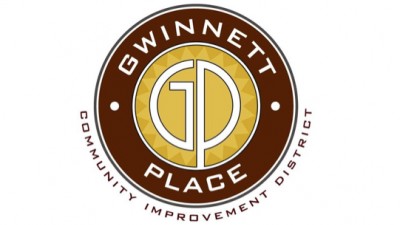Can Gwinnett County Turn An ’80s Mall Into A 21st-Century Multi-Use Destination?

One of Georgia’s fastest-growing counties is making progress in the redevelopment of a largely vacant 39-acre mall property, said a Gwinnett County commissioner closely involved in the process.
The Gwinnett Place Mall was a regional economic powerhouse when it opened in the 1980s. Four decades later, competition from newer shopping centers and changes in consumer buying preferences led to its decline. Today, it might be best known as a filming site for two seasons of the Netflix series Stranger Things.
Members of the local community, including those in the public and private sectors, see far greater potential for the property than as an eerie backdrop for movies and TV shows. Earlier this year, the county took ownership of much of the mall in an effort to redevelop the site as a multi-use office, shopping, residential and transportation hub.
“It's my hope that, whatever the results of our efforts, it will be something that can stand the test of time and attract people from all across the Atlanta metro region,” District 1 Commissioner Kirkland Carden said. “More importantly, I do hope it's a model of a modern development that ties into the existing, diverse culture that is Gwinnett County.”
Carden, his colleagues in local government and the Gwinnett Place Community Improvement District are working together to develop a master plan for the site. Their site revitalization strategy consultant team will be announced on Sept. 8 at a GPCID board meeting. Meanwhile, a county task force is expected to begin its work later this month to ensure the redevelopment plan is equitable to local residents.
Both are essential pieces of the public-private effort to repurpose the site, Carden said, adding that the work of the equity task force will be an especially high priority for him. While he praises the county’s working relationships with remaining mall tenants such as Macy’s, Carden said new development shouldn't displace nearby small businesses and residents.
“If you drive through the improvement district, you see a lot of ethnic, diverse types of businesses near the old mall,” he said. “Being equitable in how we develop this place is making sure we create space for some of these unique local businesses, because that's part of what will help make this development unique, authentic and stand out.”
The inclusion of green space is another priority for Carden. Currently, he said, the property is dominated by asphalt parking areas. That made sense when Gwinnett Place was a popular shopping destination, but a different approach is warranted now that there are plans for adjacent multifamily development.
Carden said regular meetings have improved communication among the project stakeholders, and the close collaboration has already borne fruit. This spring, GPCID received a $220K grant from the Atlanta Regional Commission to help fund the master plan.

“The master plan that the Gwinnett Place Community Improvement District and Gwinnett County are working on in partnership is really going to focus on the mall property, and the equity plan is going to focus on the local community, but there will be significant overlap,” Carden said. “We have to make sure that everything's aligning with one another, and I feel really good about it.”
Gwinnett County, he said, is taking inspiration from communities that have undertaken similar efforts to create mixed-use centers on spaces once occupied by retail malls. Those include two redevelopments in Colorado: Belmar in Lakewood and a new business district created in another Denver suburb, Westminster.
Like those projects, Gwinnett Place stands to benefit from its location in the heart of Gwinnett’s central business district that already generates $13.4B in annual economic impact — without a functioning mall. Carden said he has heard positive comments from the private sector, which is watching the county’s efforts and will play an important role in investing in the redevelopment.
“Developers are continually attracted to the area based on its diverse populations and close proximity to the I-85 corridor and access to other metro Atlanta locations like Buckhead, Midtown Atlanta and Hartsfield-Jackson Atlanta International Airport,” he said. “The mall site also offers existing utilities and infrastructure, making redevelopment here an easier lift.”
Carden said the business and commercial property communities through the CID appreciate the cooperation shown between the private and public sectors as Gwinnett County plans its next steps in a project that will span years.
"The business community is really excited,” he said. “I think a lot of folks in the private sector like the synergy here, and I feel we're moving in the right direction.”
This article was produced in collaboration between Studio B and Gwinnett Place Community Improvement District. Bisnow news staff was not involved in the production of this content.
Studio B is Bisnow’s in-house content and design studio. To learn more about how Studio B can help your team, reach out to studio@bisnow.com.

